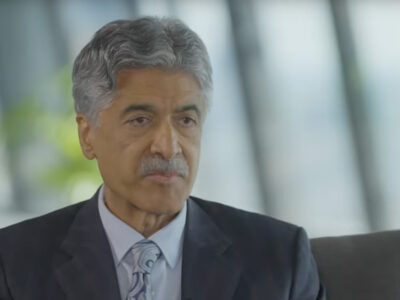Working in advertising used to be simple. You make an ad and you place it somewhere – television, print, radio or wherever it makes sense. And after that, you hope to either increase the sales or awareness of the product or service you are promoting to the largest number of people in the shortest space of time.
Things have changed since these early days and the market dynamics have been forever altered by technology. The game changer was two years ago when Pepsi ditched its traditional US$30m budget on a number of thirty second commercials during the US Superbowl, choosing instead to invest in an online marketing campaign called ‘The Refresh Project’.
This gave Pepsi’s consumers the opportunity to vote on which health, environment, culture or education organisation deserved to be given up to US$250,000 in grants. The new campaign wasn’t just about saving money – although it did save them US$13m – it was about reaching an audience of billions every day of the year.
Two years on, and even here in the Middle East, our work now is more about building communities around our clients’ brands, nurturing them and keeping them engaged 24/7 across a plethora of platforms.
Although we’re still trying to create connections between products and their consumers in order to establish a preference, the difference is significant. The notion of communities, as opposed to audiences, intimates a level of equality, symbiosis even, between the two.
Here’s an example. Henkel in Egypt invited consumers via offline and online media to join forces with others and Persil in cleaning their streets and neighborhood after the revolution. A far cry from the traditional approach of a commercial during the ad breaks on the small screen. Digital platforms, as we saw with Henkel and Persil, allowed us to spread the message and rally forces on the ground.
Another is the campaign for Mountain Dew, which behaved like a reality TV show, recruiting Arab candidates for a contest to find the Bravest Two, on Facebook. More than 1,200 applied to be part of the six chosen for the series of extreme challenges. Each webisode drew close to 1m viewers on various platforms, even before the series made it to TV. Engagement levels with the original content were much higher than would have been achieved with only a commercial.
Communities have now become a critical element of the way companies work because they themselves operate in a community. Just like no man is an island, no one operates in isolation and every dimension of a business impacts and is impacted by the community in which it exists.
Be it people, the environment, the economy, everything is inter-related and at Omnicom Media Group MENA, we are acutely aware of the role we can and must play in sustaining all of these. At both corporate and individual level, we support many initiatives and programs that contribute to improving our community in both short and long-term, working on the environment, education and crisis responses.
That’s why we are partners with the Emirates Wildlife Society, part of the WWF, and support them in a number of ways. That’s why we also support the initiatives of the Environmental Agency Abu Dhabi. And that’s also why we are forging long term relationships with other associations, such as START, an art-based charitable organization working with children refugees, with more to come.
Once a brand or a business has built a community, be it through communication or CSR activities, and properly activates and engages it over time, it will thrive more durably in ways that simply wouldn’t have been feasible nor affordable.
The trend is clear and the upsurge in the coming years will be entirely on digital advertising. In the USA, digital advertising spend is close to US$30bn a year – we may be a long way from that, but the market is growing by close to 30 per cent annually. Mobile penetration and the rise of smartphones are also significant. The UAE’s mobile penetration rate exceeds 200 percent while in Saudi Arabia and Egypt – two of the Middle East’s most populous countries – it is 138 and 80 percent respectively.
Technology isn’t just another way to get through to people, it has the potential to rally individuals around a cause or a brand, united and sharing a common interest or goal. The whole is greater than the sum of its parts and it’s precisely this that makes communities so powerful. It’s time to change the paradigm.
* Elie Khouri is
the CEO of Omnicom Media Group MENA







